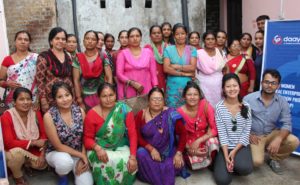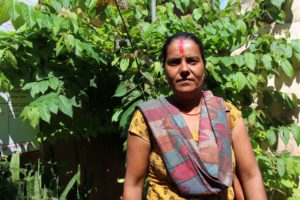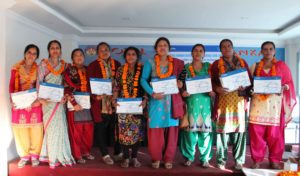Women Rural Enterprise Accelerator Program
Women Rural Enterprise Accelerator Program
Founded in 2008 by Daayitwa
Nepal
The Women Rural Enterprise Accelerator Program uses a community-based approach to encourage women's entrepreneurship, and aims to create meaningful economic and cultural ripple effects that will increase growth and visibility of women entrepreneurs and their enterprises in rural Nepal.

Due to poverty, unemployment and governance issues the rural youth of Nepal is often forced to work low-paying abroad. Some are running small and medium enterprises, but lack the environment to grow their business. Most government or civil society interventions are aimed at either the micro-level or large industries, therefore misses the middle of the SME-sector. Especially women are suffering from this national socio-economic crisis. Many women struggle to increase their visibility as entrepreneurs and grow their enterprises.
 Solution and innovation
Solution and innovation
The Women Rural Enterprise Accelerator Program with its community-based approach hosts entrepreneurship programmes for women. The top entrepreneurs are selected based on jury and public votes. The selected women receive leadership training, and funding for their enterprises. As part of the program an ‘Innovation Challenge’ is organized in rural districts. The WREAP model fosters multi-stakeholder engagement from the private sector, local government, and community leaders, and local community members. Additionally, the model raises awareness’s about and promotes women-led enterprises in rural communities.
 Results
Results
The model of Daayitwa has engaged key stakeholders such as government agencies, academia, banks, cooperatives and civic organizations to collaborate in identifying, empowering and accelerating the innovations of women-led SMEs. This has ensured women entrepreneurs have a symbiotic relationship with their communities. They have become more visible and therefore were able to grow their enterprises.
“It was because I wanted to escape poverty, and anything I would do towards that end would not go to waste. It was my belief. I tried to get as much help and information as I could to understand the business of growing tomatoes. So I went around asking local farmers and various local offices to help me out. Eventually, the entire village was trying to help, and I even got some local media attention,” Bishnu Karki Thapa.
